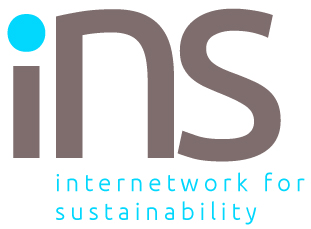
Plans to fuel homes with hydrogen suffered a further blow as the first published lab tests reveal that leaks rise sharply when hydrogen is added to regular household fossil gas.
Leaks more than doubled, on average, when best-selling models of cooking hobs were supplied with a hydrogen blend under normal household conditions, compared to tests using regular fossil gas. The same test on household boilers saw leaks rise by 44% on average.
Over the course of a year, applied to all homes in the European Union using fossil gas, the leakage would amount to the equivalent of at least 574,538 tonnes of CO2 in the atmosphere per year, or the climate emissions generated by at least 300,000 cars, and 155,755 t/e and 84,071 cars for the UK. This comes on top of the leaks that occur normally with household fossil gas networks, especially with older appliances and homes.
The study is the first to quantify leaks of hydrogen admixtures from domestic appliances. It was carried out by a UK certified lab for the non-profit ECOS – Environmental Coalition on Standards.
It had been claimed that adding renewable hydrogen would cut the climate impact of burning fossil gas by up to 7%. This helped justify domestic and other hydrogen initiatives across Europe. Portugal already requires at least 1% gas blending in its national network. But the climate benefit is wiped out if leaks amount to just 0.7% of gas burned by the average appliance, which is likely in most homes on most days, the lab tests say.
Earlier research for the UK government suggests there will be around four times more fires or explosions in homes if hydrogen replaces methane. Leaks are sure to rise further if distribution networks increase pressure to offset hydrogen’s much lower energy density. Research published by the US government found that leak rates double when pressure was raised to handle a 30% hydrogen mix.
Despite the concerns, some industry actors continue to promote hydrogen beyond what ECOS considers realistic. Some distributors claim that a quarter of European gas networks will be ready to carry pure hydrogen by 2035 and the rest by 2040. National distributors across Europe [4] are also upbeat. European boilermakers across Europe [5] label their goods as certified ‘hydrogen ready’, calling the gas the “heating solution of tomorrow” or “the fuel of the future” and a “logical step”. Some suggest hydrogen is already being distributed nationally, while a few confidently claim hydrogen will be widely adopted by 2050. Others promote their products as a sensible choice to “be ready” for the future. Some even claim that installing their ‘hydrogen ready’ boilers will cut energy bills by at least 30%.
UK regulators last year accused manufacturers of “misleading” consumers over the inevitability of a hydrogen rollout. Promoting ‘hydrogen ready’ boilers could fool people into buying products that are “technically identical” to the ones they already own, the UK consumer protection agency said. It is cracking down on 13 manufacturers. Boilermakers “should be ashamed of themselves”, the UK parliament was told last month.
The EU still sees a “key role” for hydrogen in Europe, including for industrial uses, and is spending heavily to help the fossil fuel industry try to integrate hydrogen into the fossil gas networks. In November, it published a list of 68 hydrogen projects worth more than €50 billion in taxpayer handouts, to be built and run by firms including RWE, Shell and BP. Hydrogen will make up over a third of the gas consumed by 2050, the EU predicts, with 10 million tonnes produced in the EU by 2030.
In November, an industry study found it would cost up to €703 million to prepare Spain’s gas network for 20% hydrogen, mostly to upgrade compressor stations, but not replacing household appliances. Based on those figures, the European Union faces a bill of €6.9 billion, ECOS calculates [6].
ECOS Programme Manager Marco Grippa said: “Renewable hydrogen may likely help us decarbonise heavy industry, international shipping, and long haul flights, but with its long list of health, safety, environment, and cost problems, it has no place in our homes. Why focus on this unworkable solution when there is already a clear winner? Electricity powered heat pumps and induction cooktops are the cleaner, healthier, and safer alternative to gas in domestic settings.”



